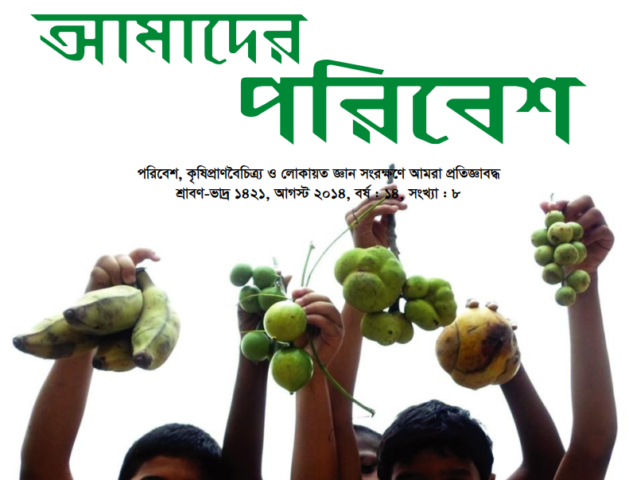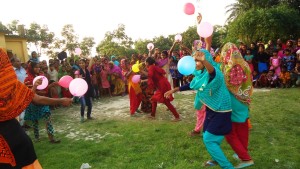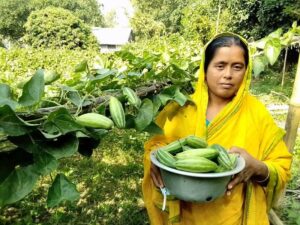By ABM Touhidul Alam
Benuka Mrong (43)an indigenous women, mother of 3 children mainly doing household chores has lead the way of sack gardening at Chandrading village of Kalmakanda Upazila in north-eastern Netrakona district which is close to Garo Hills of Meghalaya state in India.ia.
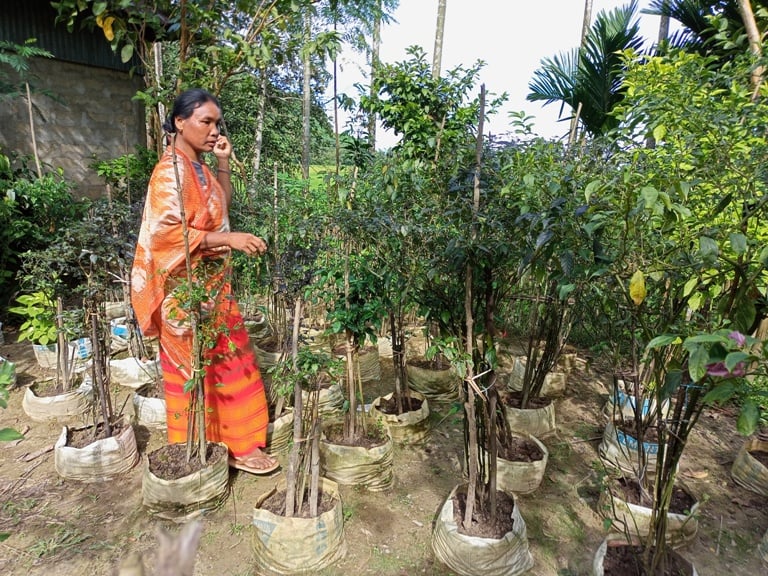
Being a bordering remote rural, located downstream of Garo Hills, runoff water during monsoon deposits sands in surrounding areas that made farming trouble manifolds. Among others, Renuka’s ancestral land (2.7 hac.) also silted and farming become hard and their total harvest could not feed as required. Besides, natural water bodies (canals, rivers etc.) also filled by sands carried by upstream flood water and having no other irrigation source livelihoods of the tribal communities are at risk.
.
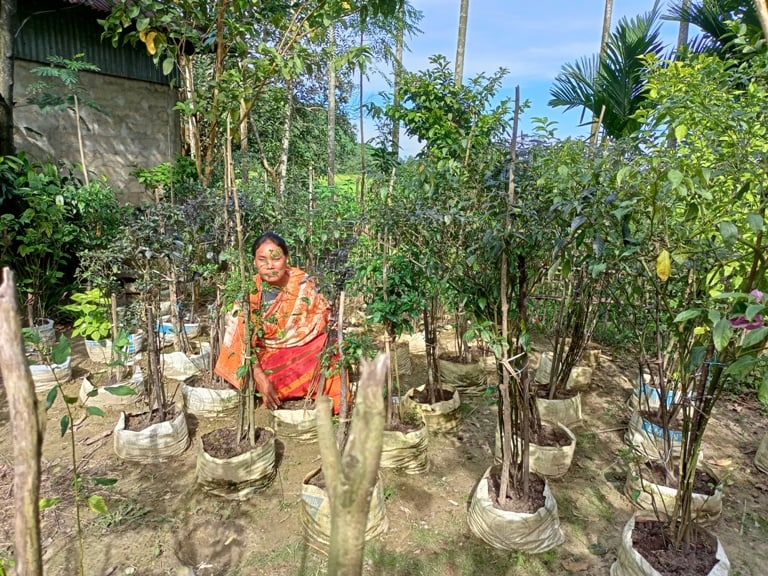
Benuka found herself destined with poverty since she was born but she has enormous enthusiasm to do something for changing family’s economic condition. In consultation with BARCIK staff members, she started sack gardening to avert the farming barrier. In 2017 she started sack gardening when she raised a piece land just besides her thatch that also filled by upstream sands left fellow. In the beginning, she started with 30 sacks where she put 12 types of local variety of pepper. Peppers grown in sacks very well and she had a good. Since 2020, many villagers in this areas have been cultivating different types of vegetables including peppers at last 5/10 sacks in each family after seeing Benuka Mrong‘s success. Her younger brother who earlier engaged in factory job, become unemployed due to Covid-19 pandemic has started sack gardening with 100 sacks. He already germinated three hundred seedlings of pumpkins and sweet gourds for putting them in sacks and on lands for next winter season. Benuka’s efforts are now exemplary for all.
Benuka said “Indigenous people’s lives in this area are not so easy. Food insecurity and siltation with seasonal flooding make us vulnerable throughout the year. In most areas, only rice is cultivated. Every year, our lands cover by sand that affects greatly our livelihoods. With the Facilitation, technical advice and handful amount of material support from BARCIK, many people now cultivating bean, yard long bean, papaya and got a tremendous result. Successful cultivation of pumpkins in the climate vulnerable areas has brought the families good fortune to lead a better life.
Poor and marginalized farmers are least able to cope up with environmental and economic shocks in the low lying areas of Bangladesh. Their means of subsistence is facing a continuous threat of ruin for climate change and so called development initiatives. Currently, the indigenous people are trying to build up their capacity to adapt with this susceptibility. Climate adaptive new technologies and crop varieties are now their main source of livelihood and food security.

